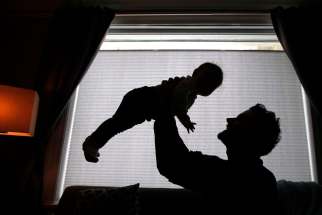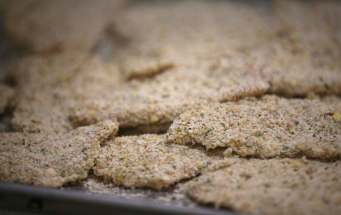The big schnit(zel) Faced with an aging membership and declining revenues, the German Society of Winnipeg is bouncing back, with help from a tasty traditional treat
Read this article for free:
or
Already have an account? Log in here »
To continue reading, please subscribe:
Monthly Digital Subscription
$0 for the first 4 weeks*
- Enjoy unlimited reading on winnipegfreepress.com
- Read the E-Edition, our digital replica newspaper
- Access News Break, our award-winning app
- Play interactive puzzles
*No charge for 4 weeks then price increases to the regular rate of $19.00 plus GST every four weeks. Offer available to new and qualified returning subscribers only. Cancel any time.
Monthly Digital Subscription
$4.75/week*
- Enjoy unlimited reading on winnipegfreepress.com
- Read the E-Edition, our digital replica newspaper
- Access News Break, our award-winning app
- Play interactive puzzles
*Billed as $19 plus GST every four weeks. Cancel any time.
To continue reading, please subscribe:
Add Free Press access to your Brandon Sun subscription for only an additional
$1 for the first 4 weeks*
*Your next subscription payment will increase by $1.00 and you will be charged $16.99 plus GST for four weeks. After four weeks, your payment will increase to $23.99 plus GST every four weeks.
Read unlimited articles for free today:
or
Already have an account? Log in here »
Hey there, time traveller!
This article was published 21/03/2019 (2463 days ago), so information in it may no longer be current.
Maybe you’ve heard the radio commercial that teasingly poses the question, “Where’s the best tasting schnitzel in Winnipeg?”
And perhaps like us, it wasn’t the narrator’s response, “Why, the Schnitzelhaus, of course,” that first grabbed your attention, so much as the stated locale’s seemingly limited hours of operation, described towards the tail-end of the blurb as, “the Schnitzelhaus opens every Friday at 5 p.m.”
After all, what eatery worth its salt — or in the case of one named for schnitzel, pepper and breadcrumbs, too — is only open one night out of the week?
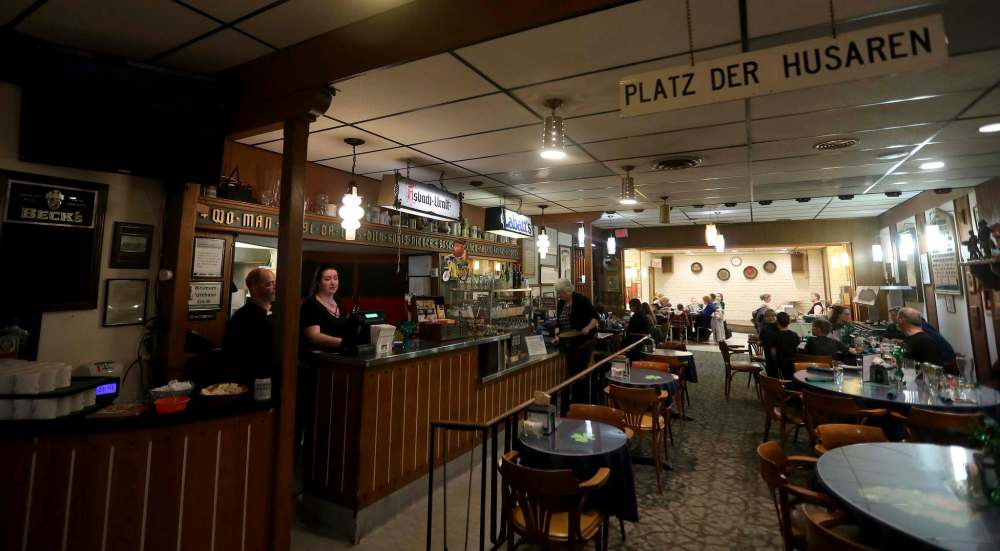
It turns out the Schnitzelhaus is an offshoot of the German Society of Winnipeg, and is haused, er, housed on the main level of its North End headquarters at 121 Charles St., in a folksy, 100-seat room branded the schanklokal.
(How charming a space is it? Well, in addition to a library of German-language hardcovers and a glass display case laden with for-purchase souvenirs such as “You bet your bratwurst” t-shirts and music cassettes advertising “die grossen hits” of late German recording star Roy Black (born Gerhard Höllerich), there is also a glass shelf behind the fully stocked bar reserved for ornate, ceramic beer steins, every last one of which is the private property of an individual club member.)
“This part of the building is put to good use during Folklorama, but about three years ago, the other board members and I were saying, we have a kitchen, we have this beautiful space, why don’t we try using it more often?” society president Gary Rossol explains, pausing to say “danke schoen” to a server dropping off a couple cold ones, a Holsten Premium for him and a Dab Original for a parched reporter.
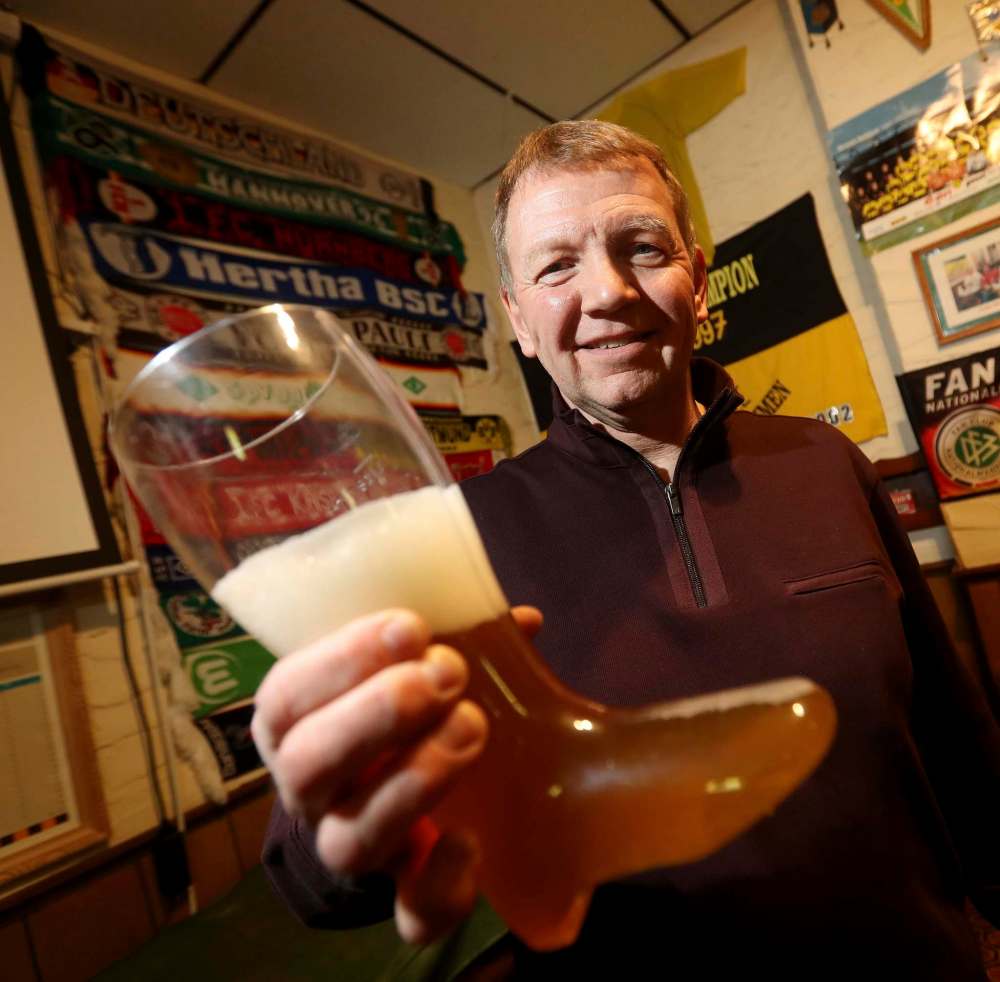
Here’s the thing: for the fiscal year ending January 2016, the society’s restaurant and bar showed a net loss of $32,143, a figure Rossol, a certified public accountant by day, declared as unsustainable.
But what options did he and his fellow board members have? After all, in a bid to make ends meet, the 127-year-old organization had already relaxed several of its rules.
For example, you no longer have to be a card-carrying member to attend spirited, Saturday morning get-togethers in the Bundesliga room, where soccer matches featuring squads from the German professional league are broadcast on a giant screen.
Nor do you have to belong to the club to buy tickets to live music, cabaret nights held in the upper hall, a cavernous room that was originally used as a gymnasium back when the two-story brick and stone building opened as a Hebrew Free School in 1913.
(According to the Manitoba Historical Society’s website, the academy, at one point considered to be among the three best Talmud Torahs in North America, closed in 1951, at which point it was purchased and renovated by the German Society of Winnipeg.)
“For as long as we’re around, we’ll always be a members’ club; but the same as has happened over the years to lots of places — Royal Canadian Legions are a prime example — a good chunk of our membership is getting on in age, making it difficult for them to make their way down for a bite or drink on a regular basis,” Rossol says, recalling rollicking, Saturday afternoons in the mid-1970s when, as a teenager, he and a dozen other boys and girls his age entertained full houses week-in, week-out in the schanklokal, “squeezing away” on their accordions for a few hours. (”In the summer of ‘69, the same year Bryan Adams got his ‘first real six-string,’ I was learning how to play accordion, instead,” he deadpans.)
“Plus, it’s really hard to attract new, younger members because everybody is super busy these days running their kids around to 10 different activities every weekend. So what we thought is maybe the general public would like to come the odd time for schnitzel, without having to purchase a membership.”
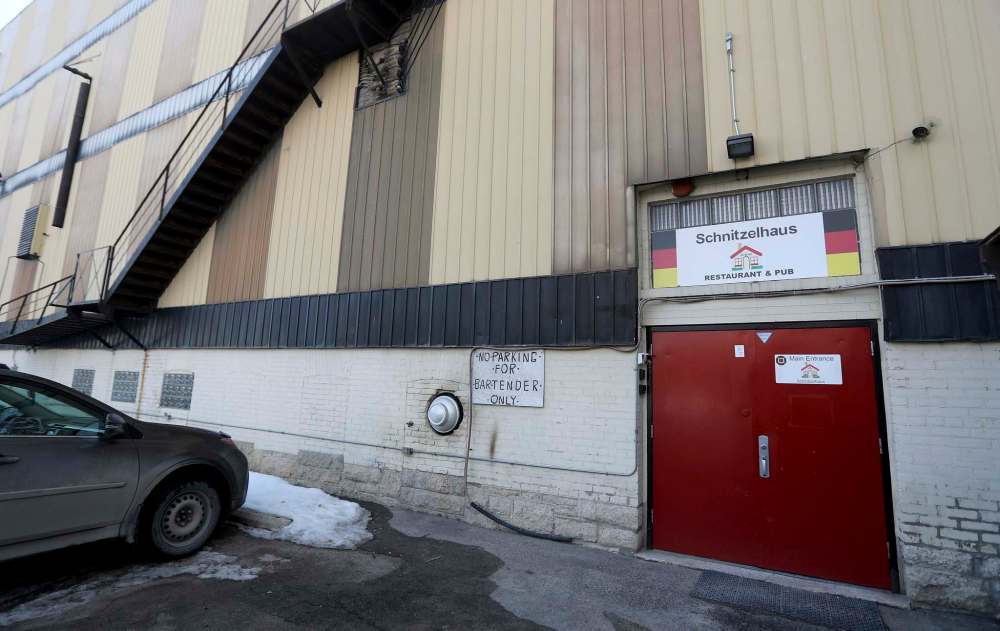
Thus was born Schnitzel Fridays, and by that same token, the Schnitzelhaus.
Their plan seems to be working. On a recent Friday evening, almost every table is packed with diners of all ages enjoying the all-you-can-buffet, which offers two types of pork schnitzel, hunter schnitzel served with a rich, mushroom sauce and gypsy schnitzel, topped with a zesty pepper flavouring, as well as salad, buns, house-made spatzle (egg noodles), rotkohl (red cabbage), glazed carrots and potatoes. (The $17.25 charge — $8.25 for children under 12 — includes coffee, milk or juice.)
Madeleine Kunzler is the club’s restaurant and pub director. She believes one of the reasons for the “up-tick” in attendance lately is the dearth of German-flavoured restaurants in Winnipeg.
Since long-time St. James icon Gasthaus Gutenberger ceased operations several years ago, the Crusty Bun, run by married couple Frieda Brandt and Andi Ingenfeld, has been the only place in town diners can head to for authentic, German cuisine, she says.
The only problem is neither of that bakery’s two outlets, on St. Mary’s Road and Headmaster Row, are open past 6 p.m., eliminating both as a dinner option. (Yes, Bistro Dansk on Sherbrook Street and In Ferno’s Bistro on Rue Des Meurons advertise schnitzel on their menu, but recipes at those particular spots are more Danish or French in nature, respectively, Kunzler points out.)

“My husband Siegfried and I have travelled to Germany numerous times, and the last time we were there, we made a point of trying the schnitzel in each of the various regions, to see how it compares to our cook Victor’s,” Kunzler says, speaking loudly enough to be heard over what sounds like the Connie Francis hit Everybody’s Somebody’s Fool, except sung in German.
“After eating our fill, I can safely say what we serve here not only compares favourably but is better, in my opinion, than a lot of the places there.”
To date, the German Society’s “Schnitzel Fridays” have resulted in a few, new people becoming dues-paying members, Rossol says. Better still, due to the positive response, the club has also added a second, open-to-the-public buffet night on Thursday evenings, when the rotating menu boasts German favourites such as frikadellen, bratwurst, goulash and bratkartoffeln. (Remarking, “It’s the same as an Italian saying he doesn’t like pasta,” Rossol admits he has never been a big fan of sauerkraut.)
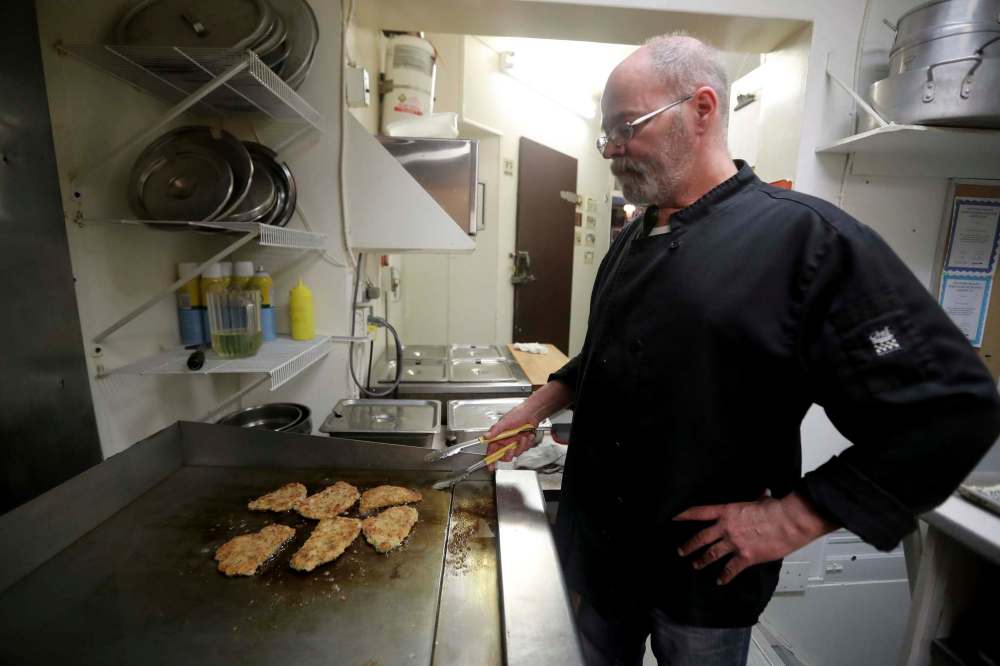
Of course, all of this begs the question: if the Schnitzelhaus continues to draw Winnipeggers of all cultural stripes to its weekly chow-downs, why aren’t there more German restaurants in the city, the same way there are numerous spots dedicated to Greek, Japanese or Thai cuisine?
“As good as it is, German food has never had the same — I don’t know if this is the right word or not — sexiness as sushi or pizza,” Rossol says with a chuckle. “So I suppose our ultimate goal here is to make schnitzel sexy. Then we’ll really be able pack the place.”
david.sanderson@freepress.mb.ca
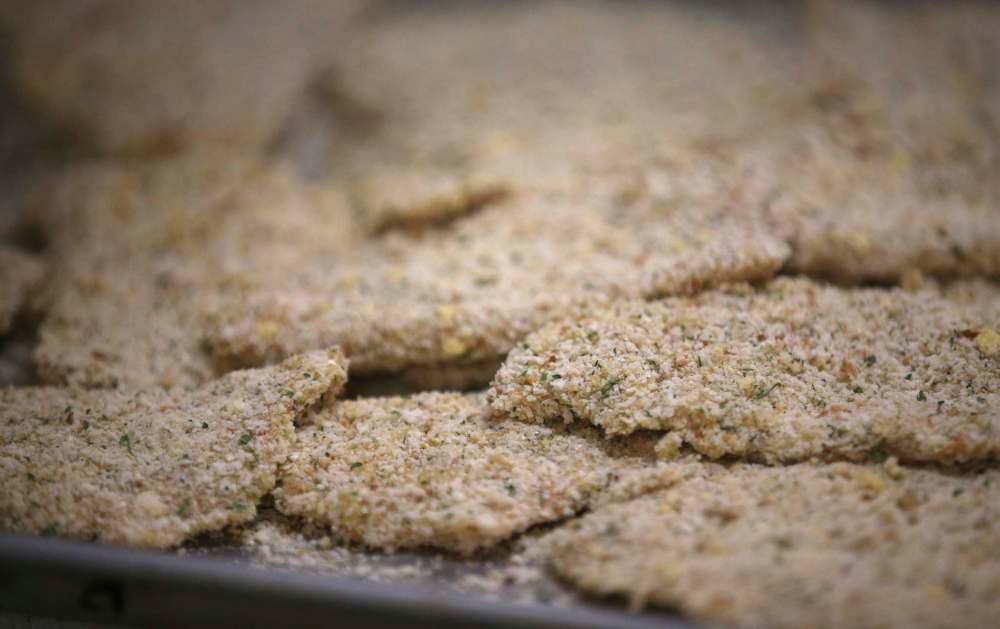
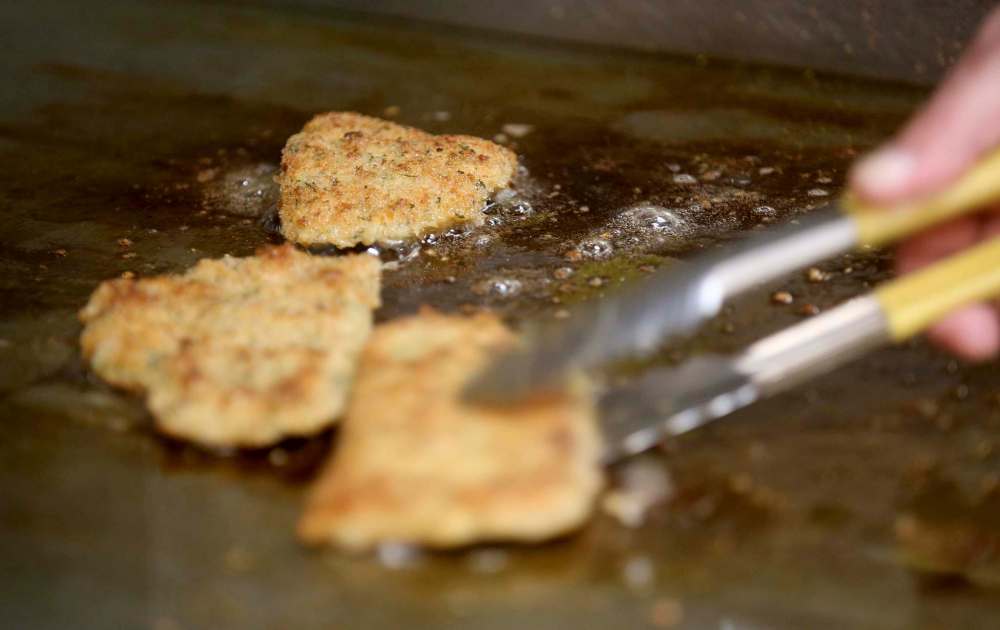
Dave Sanderson was born in Regina but please, don’t hold that against him.
Our newsroom depends on a growing audience of readers to power our journalism. If you are not a paid reader, please consider becoming a subscriber.
Our newsroom depends on its audience of readers to power our journalism. Thank you for your support.




